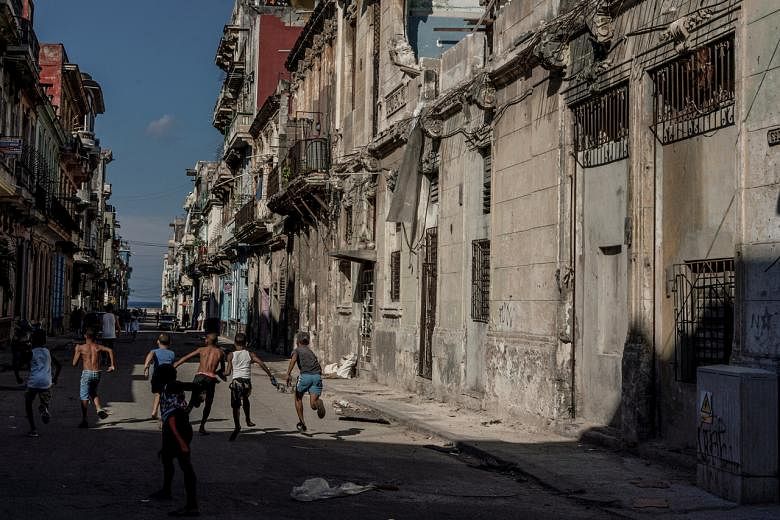HAVANA (AFP) - Cuba has authorised state security agencies to use electronic surveillance without prior approval from a court, prompting criticism from the United States which accuses Havana of spying on opponents and tourists.
Havana said the new laws would make the police more effective "in preventing and confronting money laundering and terrorist financing."
The measures were introduced in a change to the Communist-run country's penal code last week.
Investigators must first request surveillance authorisation from the Attorney-General.
"This is the case everywhere in the world. The difference is that elsewhere you need authorisation from a judge whereas in Cuba it is between police and the prosecutor's office," constitutional analyst Julio Fernandez Estrada told AFP.
Mr Fernandez said electronic surveillance would allow investigators to "listen to and record conversations," locate and track suspects, take picture and videos and tap into all types of communications technology.
The United States - involved in a mass surveillance scandal in 2013 reported by ex-Central Intelligence Agency whistleblower Edward Snowden - slammed what it called "a sweeping new law that enables surveillance in Cuba."
"The regime can and does follow, watch and eavesdrop on anyone in Cuba under the pretext of 'reducing crime,'" said the US top diplomat in Latin America, Mr Michael Kozak.
"In the Castro police state, just thinking differently is considered criminal," Mr Kozak said in a tweet.
"International visitors can choose whether or not to visit #Cuba and subject themselves to these invasions of privacy. Sadly, Cubans have no choice."

